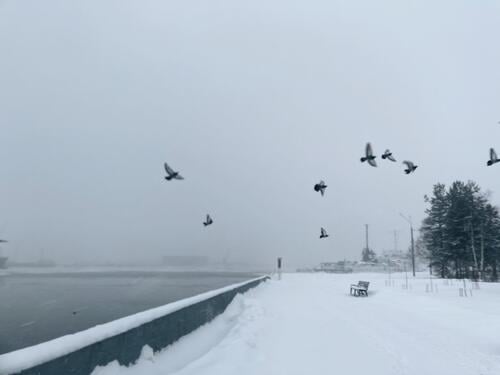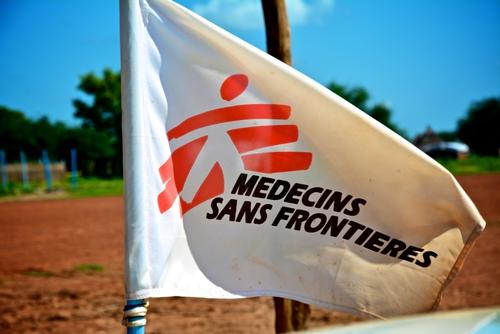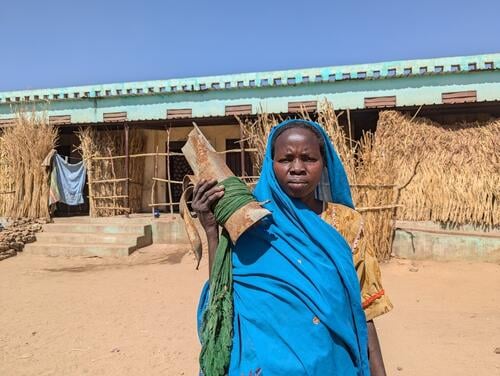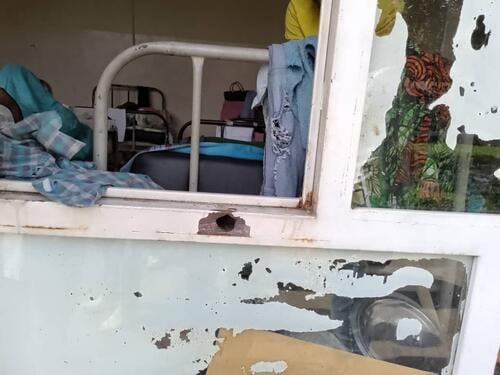- After receiving a letter from the Ministry of Justice of Russia, MSF-Netherlands had to close our operations in the country.
- This comes after 32 years of working in Russia.
- MSF would like to work in Russia again should the necessary conditions be provided by authorities.
Moscow / Amsterdam – Thirty-two years after starting work in Russia, Médecins Sans Frontières (MSF) had to close our operations in the country. In August this year, we received a letter from the Ministry of Justice of Russia, with the decision to withdraw the affiliate office of the non-profit association ‘Médecins Sans Frontières’ (Netherlands) in Russia from the register of affiliate and representative offices of foreign NGOs.
“It is with a heavy heart that we have to close our activities in Russia,” says Yashovardhan, head of MSF programmes in the country. “Our organisation’s work is guided by the principles of independence, impartiality, and neutrality, and medical ethics. We provide assistance based on the needs.”
MSF had been present in Russia since 1992. For more than 30 years, we successfully implemented dozens of programmes, ranging from assistance to the homeless to emergency response to the collaborative work with the Ministry of Health on innovative tuberculosis treatment. We worked in various regions of the country, including Moscow, St. Petersburg, the Kemerovo region, Chechnya, Ingushetia, Dagestan, and - more recently – in the Arkhangelsk and Ivanovo regions, as well as in the south of Russia in Belgorod and Rostov-on-Don.
It is with a heavy heart that we have to close our activities in Russia.Yashovardhan, head of MSF programmes in Russia
A significant part of the history of MSF in Russia and the region was linked to the implementation of advanced approaches to the treatment of tuberculosis. MSF has collaborated with the medical academic community of Russia and other countries in the eastern Europe and central Asia to extend effective, innovative treatment for drug-resistant tuberculosis to patients in penitentiary and civil sectors across the region.
In 2004-2017, we worked in close partnership with the Chechen Ministry of Health, providing technical and advisory support to the local health authorities in the treatment of drug-sensitive and drug-resistant tuberculosis in the Chechen Republic. The programme covered different aspects of tuberculosis diagnostics, treatment, laboratory services and health education, as well as adherence counselling and psychosocial support for patients and their families. In 2014, MSF supported the Ministry of Health in introducing new treatment regimens for patients with extensively drug-resistant tuberculosis which yielded impressive results giving hope to patients who previously had no treatment options left.
In 2021, MSF and local health authorities of the Arkhangelsk region in the north of Russia started successful implementation of a nine-month all-oral course of treatment for drug-resistant tuberculosis. We enrolled 173 patients on this treatment regimen. And later, in 2023, we started enrolling patients on an even shorter, six months-long, all-oral treatment course that was recommended by the World Health Organization in the updated treatment guidelines in late 2022.
In Arkhangelsk, and starting from 2024 in Ivanovo, MSF was providing expertise and technical assistance to health authorities with a special emphasis on implementing new treatment regimens and enhancing patients’ adherence and integrating person-centred care. To date, 41 patients in the Arkhangelsk and Ivanovo regions started treatment for drug-resistant tuberculosis within this joint programme. The aim of the collaboration was to contribute to the evidence base for more effective, meaning less toxic and person-centred, treatment with a view to scale up these scientifically proven treatment protocols in Russia.
In Moscow and St. Petersburg since 2020, MSF partnered with two community-based NGOs to support access to general healthcare, as well as testing and treatment for infectious diseases, for people living with HIV and other vulnerable groups, such as migrants, who otherwise struggle to obtain medical assistance. Over 14,000 medical consultations were supported for patients from these vulnerable groups.
Since the escalation of the armed conflict in Ukraine in 2022, many people have sought safety in Russia, and MSF, in partnership with local NGOs in the Belgorod and Rostov regions in the south of Russia, started providing assistance to those who crossed into Russia from Ukraine and later – with the development of the situation – internally displaced people. Since the start of our response in 2022, more than 52,000 refugees and displaced people were provided with humanitarian aid and more than 15,400 received free medical, mental health and psychosocial support.
As part of this partnership, we were also planning to respond to the humanitarian and medical needs of the internally displaced people in the Kursk region. MSF continues to stand in solidarity with people impacted by this conflict and remain steadfast in our commitment to provide humanitarian assistance to those in need, irrespective of what side of the front line they are on, should the necessary conditions for our work be provided by relevant authorities.
“We would like to take the opportunity to thank all our colleagues in Russia for their hard work and commitment to humanitarian values we hold high as an organisation,” says Norman Sitali, MSF operations manager responsible for programmes in Russia. “We are very sad to conclude our programmes in the country as many people in need of medical and humanitarian assistance will now be left without the support we could have provided to them. MSF would like to still work in Russia again, if and when possible”.






